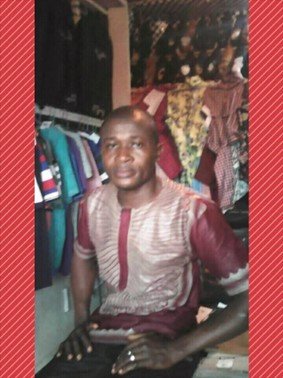Freetown, Sierra Leone – 20th January 2022 – Despite on-going sensitization efforts about the harmful effects of secret societies, forced initiations remain prevalent in many parts of Sierra Leone. The latest incident involves Mambu Kanneh, a resident of 15 Mariama Street, Kenema town, who was forced to flee his home and later the country after refusing initiation into the Poro Society, a male secret society deeply embedded in Sierra Leone’s cultural fabric.
On the night of the incident, Mambu Kanneh was staying at his late father’s residence in Kenema with his two children (Adama and Yakuba). It was alleged that a group of youths from the Poro Society stormed the home, demanding Kanneh should join them for initiation as required by customs and traditions.
During the argument, his children were pushed to the ground, and Kanneh was forcibly taken away while the assailants chanted initiation songs. In a twist of fate, Kanneh managed to escape from the society and fled to an unknown destination.
Kanneh’s refusal to join the society was compounded by the demand that he assume his late father’s role within the Poro society, a position that would have bound him irrevocably to the group. Community stakeholders later revealed that had Kanneh not escaped, he likely would have faced death, as has been the case for other young men who resisted initiation.
The Poro Society is a traditional male secret society active in Sierra Leone Historically, it served as a rite of passage for young men, teaching them leadership, hunting, and social values. However, in recent decades, it has been accused of human rights violations, including forced initiations, torture, and even murder. The society often targets young men through coercion and violence, with those who resist facing severe consequences including ostracism, physical harm, or death.
The society counts among its members high-ranking officials, including politicians, police officers, and military personnel. This complicity often shields the society from legal accountability. The society’s rituals are shrouded in secrecy, and members are bound by oaths that prohibit disclosure. Non-members who witness these rituals are considered transgressors and face retribution.
Kanneh’s escape has left his family vulnerable. His children Community members sympathetic to Kanneh’s plight fear reprisals from the Poro Society and have called for government intervention.
Human rights advocates urge the Sierra Leonean government to mediate between traditional practices and modern legal frameworks. They emphasize that while cultural traditions should be respected, they must not violate fundamental human rights. Recommendations include strengthening laws against forced initiation, providing safe havens and legal support for victims and expanding awareness campaigns to educate communities about the dangers of coercive traditional practices.
The case of Mambu Kanneh underscores the ongoing struggle between preserving cultural heritage and upholding human rights. As Sierra Leone grapples with these competing values, the plight of individuals like Kanneh serves as a stark reminder of the urgent need for reform. Without decisive action, forced initiations and their devastating consequences will continue to perpetuate a cycle of fear and violence.




